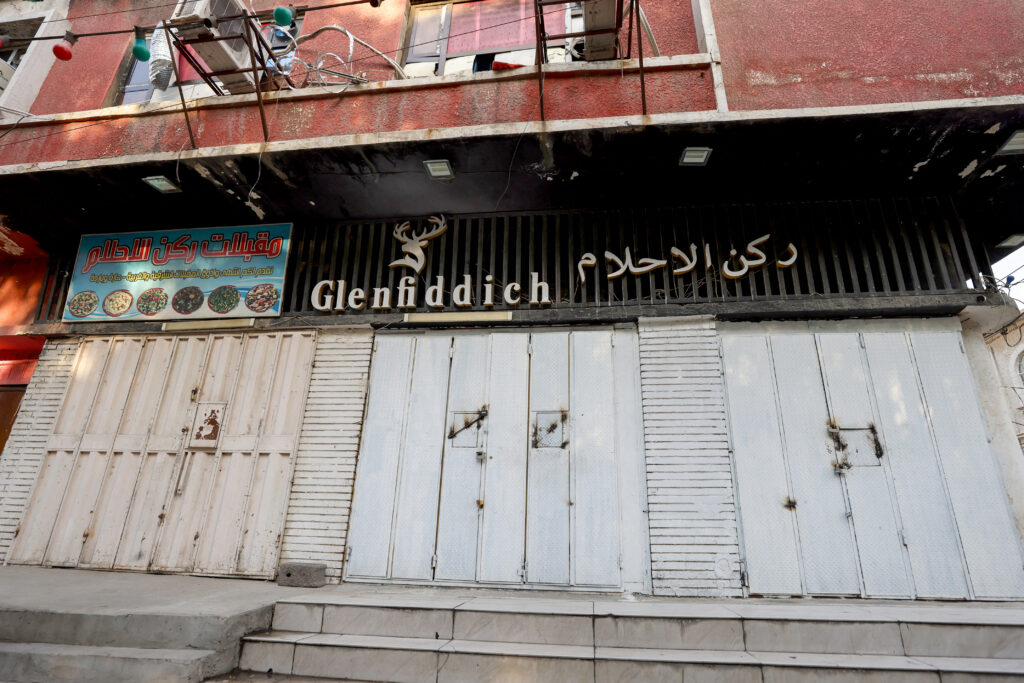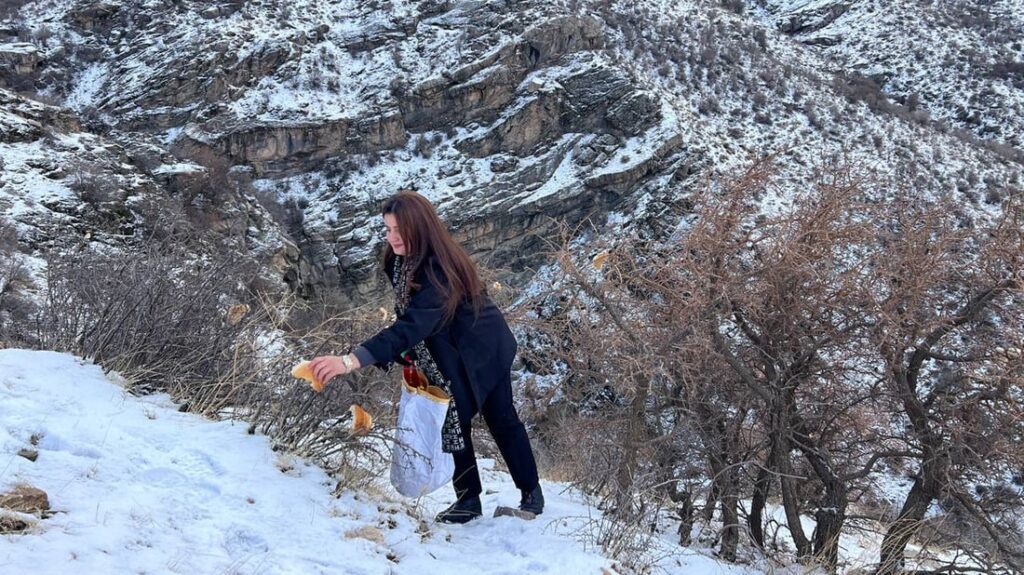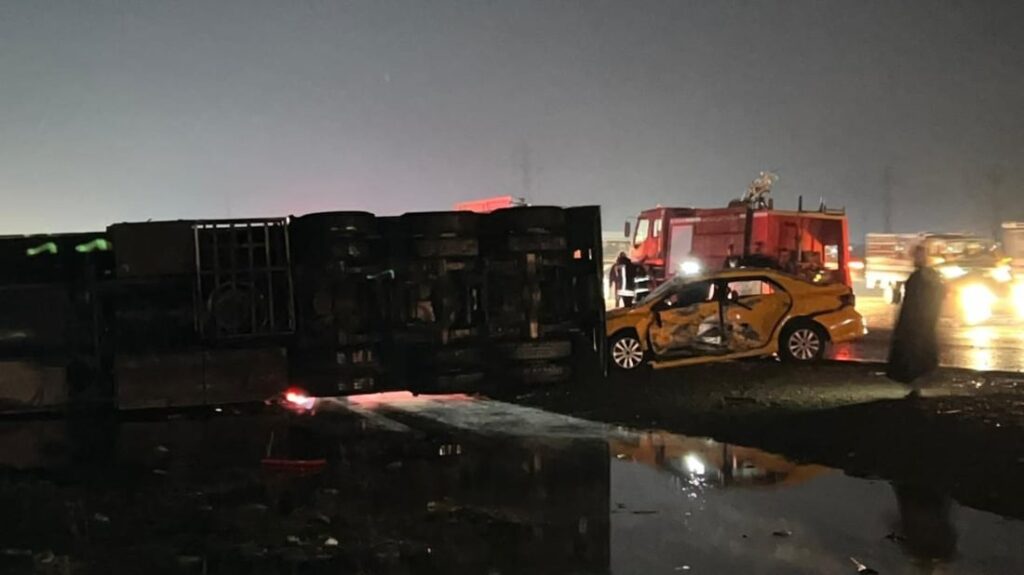Will killers of Iraq's activists finally face justice?

After over 30 murders of pro-democracy activists in Iraq, one suspect has finally been arrested. But thousands of activists continue to live in fear.
For months now, Iraqi activists, analysts and journalists — that is, anybody who has spoken out for political reform in the country — have been under attack.
According to local human rights organizations, there have been as many as 35 murders and 82 attempted assassinations over the past 18 months or so since the start of popular protests in late 2019 that forced leadership changes.
The Iraqi government has promised to investigate the murders, but almost none have been cleared up.
The death toll includes high-profile activists like Ihab al-Wazni, a protest organizer in the southern city of Karbala. He was shot dead earlier this month. Last June, the murder of well-known security analyst Hisham al-Hashimi made international headlines.
Other prominent activists, such as Ali Jasb Hattab Aboud, a human rights lawyer acting on behalf of protesters, have been kidnapped and not seen again. In a sad twist, those murdered include Aboud's own father, who was seeking justice for his son through Iraq's courts. He was shot dead in March 2020.
A memorial for murdered security analyst Hisham al-Hashimi
Murders caught on video
Some of the killings, including that of al-Hashimi, al-Wazni and Aboud senior, have been caught on surveillance cameras. The grainy footage often has grim similarities, showing how the assassins arrive, in cars or on motorbikes, outside the victim's home. They shoot their target in public settings, sometimes even in broad daylight, with apparently no regard for potential observers.
Many of the dead were critical not only of corruption within the Iraqi state but also of the power held by the country's paramilitaries, known as the Popular Mobilization Forces, or PMF.
The PMF were formed to fight the extremist group known as the "Islamic State" (IS) and, even though that enemy has now mostly been defeated, many PMF fighters still pledge loyalty to Iran's leadership. Iran provided financial, logistical and military support during the conflict against IS.
It is believed that the assassinations and kidnappings are being carried out by members of the PMF, or by new, lesser-known offshoots of the movement. Activists make these accusations openly.
As a result, activists say they are threatened daily. Many of their number have gone into hiding, two of them told DW.
'I know I'm in danger'
"There is an active campaign calling for my death, and I know I'm in danger," one former protester, who did not wish to be named because of the death threats, told DW. "My family has suffered because of this and continues to suffer. That's a huge burden for me. But I refuse to just become just another number [in the death toll]."
The activists said they had shut down social media accounts and changed email addresses and phone numbers. Some were sleeping in a different bed every night, moving between the homes of friends and relatives. Others were trying to leave the country.
Many have departed for the semi-autonomous northern region of Iraqi Kurdistan, where a Kurdish-run military and legal system prevails and the paramilitaries cannot operate with the same impunity. The activists told DW they believe that tens of thousands have fled north because of the campaign of intimidation and murder. This includes not only former protesters, they said, but also lawyers, journalists and even judges, whose lives were also being threatened.
On May 25, protesters demonstrated against the government and the assassination campaign in Baghdad
Democratic movement silenced
"Of the people that we were in contact with during the October 2019 protests, it is remarkably sad to see how few of them are still living at home," Belkis Wille, a senior researcher at Human Rights Watch, told DW. "And those that are still living at home have effectively been silenced because of a fear — a very real fear — that speaking out could cost them their lives."
Iraq is holding a federal election in October this year, and some of the former protesters had previously formed new political parties to contest the vote. But over the past few months, in the current climate of fear, this nascent,grassroots movement has largely been silenced.
This week though, the Iraqi government finally made an arrest. At dawn on May 26, the state detained Qassim Mahmoud Musleh, a PMF commander who is thought to be behind the assassinations of two activists in Karbala, one of them Ihab al-Wazni.
Could this finally be the beginning of the imposition of law and order that would allow the thousands in hiding to return home?
PMF units blocked off parts of Baghdad after the arrest of one of their commanders on May 26
Suspects released
Opinions are divided. "This is good news because it means that maybe the government is really trying to do something," an ex- journalist in hiding in Baghdad told DW. "Of course, there is still fear because this is just one small effort. We are waiting to see what will happen next, if the state will follow up on this."
For Tallal al-Hariri, one of the founders of October 25, a new political party, Musleh's arrest has only increased concerns. He fears what the PMF will do next. "We have already seen how the terrorist militias took revenge on the state and how they even besieged the government inside the Green Zone," said al-Hariri, who has been outspoken about the negative influence that Iran-supported factions are having on his country and, as a result, has been threatened with death.
Al-Hariri is referring to the fact that, after the arrest of 14 PMF members in June last year for launching rockets at Baghdad airport and the US Embassy, pressure from the paramilitaries saw them released.
"They caved in and released the terrorists," al-Hariri states. "That was the biggest setback for us because it shows that we'll never be safe and that the Iraqi state is being destabilized from within."
At the time of writing, Musleh was still in custody, although it was unclear how long he would stay there.
Threat to Iraqi government
This is probably the fifth time the Iraqi government, headed by Prime Minister Mustafa al-Kadhimi, has made a serious move against the paramilitaries, Tamer Badawi, an analyst and associate fellow with the Bonn-based think tank CARPO,told DW. "It's becoming quite a regular practice," Badawi said. "Every time he crosses the [PMF] red lines without a lethal backlash, he is emboldened to carry on."
The PMF have already demanded custody of Musleh, and some members even gathered threateningly around Baghdad's closely guarded Green Zone, where government buildings and foreign embassies are located. Iraqi government security forces had been dispatched to guard the area beforehand.
It is also important to note the PMF are becoming less popular with the general public, Baghdad-based political analyst Mustafa Habib told DW. "They have squandered the good reputation they gained from fighting the 'Islamic State' group," he said. "The general public may not know that much, or even care that much, about what is happening to the activists."
"But one thing that's clear is how unpopular the paramilitaries are becoming," he concluded. "Many people here feel they are acting against Iraq's interests. If the elections go ahead without fraud, it is likely that any political parties associated with them will lose support."






